Business
SERAP sues CBN over unlawful regulations on customers’ social media handles’
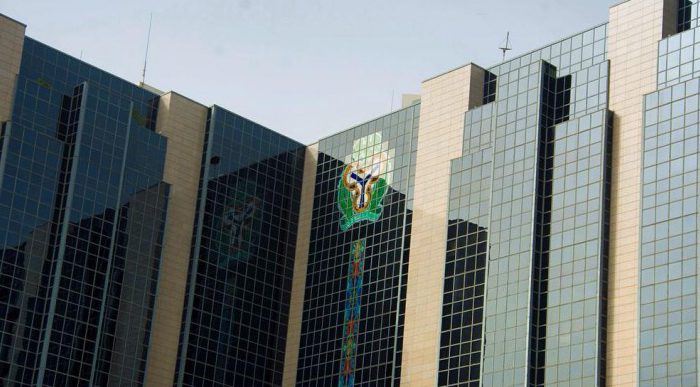
The Socio-Economic Rights and Accountability Project (SERAP) has filed a lawsuit against the Central Bank of Nigeria (CBN) over “the failure to delete the patently unlawful provisions in the Central Bank of Nigeria (Customer Due Diligence) Regulations directing banks to obtain information on customers’ social media handles for the purpose of identification.”
This is coming barely a month after the advocacy group issued a 3-day ultimatum to the apex bank to withdraw these regulations directing banks to obtain customers’ social media handles or face legal action.
In the suit number FHC/L/CS/1410/2023 filed last Friday at the Federal High Court in Lagos, SERAP is seeking: “an order of mandamus to direct and compel the Central Bank of Nigeria to withdraw its directive dated June 20, 2023, to banks and other financial institutions to obtain information from customers’ social media handles.”
- SERAP is also seeking: “an order of mandamus to compel the CBN to delete the unlawful provisions of Section 6 of its Customer Due Diligence Regulations, 2023 for being inconsistent with Section 39 of the Nigerian Constitution 1999 [as amended] and Article 9 of the African Charter on Human and Peoples’ Rights.”
- SERAP is also seeking: “an order restraining the CBN from carrying out or giving effect to the unlawful provisions of Section 6 of its Customer Due Diligence Regulations, 2023 directing banks and other financial institutions to obtain information from customers’ social media handles.”
- In the suit, SERAP is arguing that: “The mandatory requirement of social media handles or addresses of customers does not serve any legitimate aim. Such information may be used to unjustifiably or arbitrarily restrict the rights to freedom of expression and privacy.”
- SERAP is also arguing that “Unless the reliefs sought are granted, the CBN will implement and enforce the unlawful directive in contravention of citizens’ rights to freedom of expression and privacy.”
The advocacy group noted that there are other means of identification such as passport, driver’s licence, Bank Verification Number (BVN), and Tax Identification Number (TIN), which banks and other financial institutions already require their customers to provide.
SERAP is also arguing that the additional requirement of obtaining details of a customer’s social media handle or address fails to meet the requirements of legality, necessity, and proportionality.
- SERAP is further arguing that “The facts that there are sufficient means of identification for CBN, banks and other financial institutions to rely on to meet the requirement of Know Your Customer also heighten concerns of overreach and confer far-reaching discretion on banks and financial institutions.”
- The suit filed on behalf of SERAP by its lawyers, Kolawole Oluwadare and Ms Blessing Ogwuche, partly reads, “Obtaining information on customers’ social media handles or addresses as means of identification is more intrusive than necessary.
- “According to Section 6(a)(iv) of the CBN Regulations, banks and other financial institutions ‘shall identify their customer and obtain information on the social media handle of the customer.’ Section 6(b)(iii) contains a similar provision.
- “The purported mandatory requirement would inhibit Nigerians from freely exercising their human rights online. If obtained, such information may also be misused for political and other unlawful purposes.
- “The CBN Regulations and directive to banks and other financial institutions would impermissibly restrict the constitutional and international rights to freedom of expression, privacy and victims’ right to justice and effective remedies.
- “Requiring social media handles or addresses of customers as a means of identification would have a disproportionate chilling effect on the effective enjoyment by Nigerians of their rights to freedom of expression and privacy online.
- “The requirement of necessity implies an assessment of the proportionality of the grounds, with the aim of ensuring that the excuse of ‘regulations on customer due diligence’ is not used as a pretext to unduly intrude upon the rights to freedom of expression and privacy.
- “The CBN Regulation does not demonstrate how the use of social media handle or address as a means of identification would serve to improve banks and other financial institutions’ ability to implement and comply with the laws and regulations relating to customer due diligence.
- “The Directive by the CBN, which does not, in any event, carry the force of law, also fails to provide any explanation as to how social media handles or addresses can facilitate compliance with regulations relating to customer due diligence.
- “Obtaining the details of customers’ social media handles or addresses would unduly interfere with the rights to freedom of expression and privacy. It would also be disproportionate to any purported legitimate aim that the CBN seeks to achieve.
- “The cumulative effect of any attempt to access details of customers’ social media handles or addresses would be to undermine the letter, substance and spirit of the rights to freedom of expression and privacy of Nigerians.”
- “The effective enjoyment of these fundamental rights constitutes a fundamental pillar for building a democratic society and strengthening democracy.
- “The positive obligations of Nigeria to ensure the rights to freedom of expression and privacy will only be fully discharged if individuals are protected against violations by institutions like the CBN.
- “The Nigerian Constitution guarantees in Section 39 the right to freedom of expression and in Section 37, the right to privacy.
- “Restrictions to the rights to freedom of expression and privacy that do not comply with the elements of legality, legitimate purpose, and necessity and proportionality shall be deemed unlawful.”
No date has been fixed for the hearing of the suit.
Business
Dangote refinery reduces ex-depot price of petrol to N970 for oil marketers
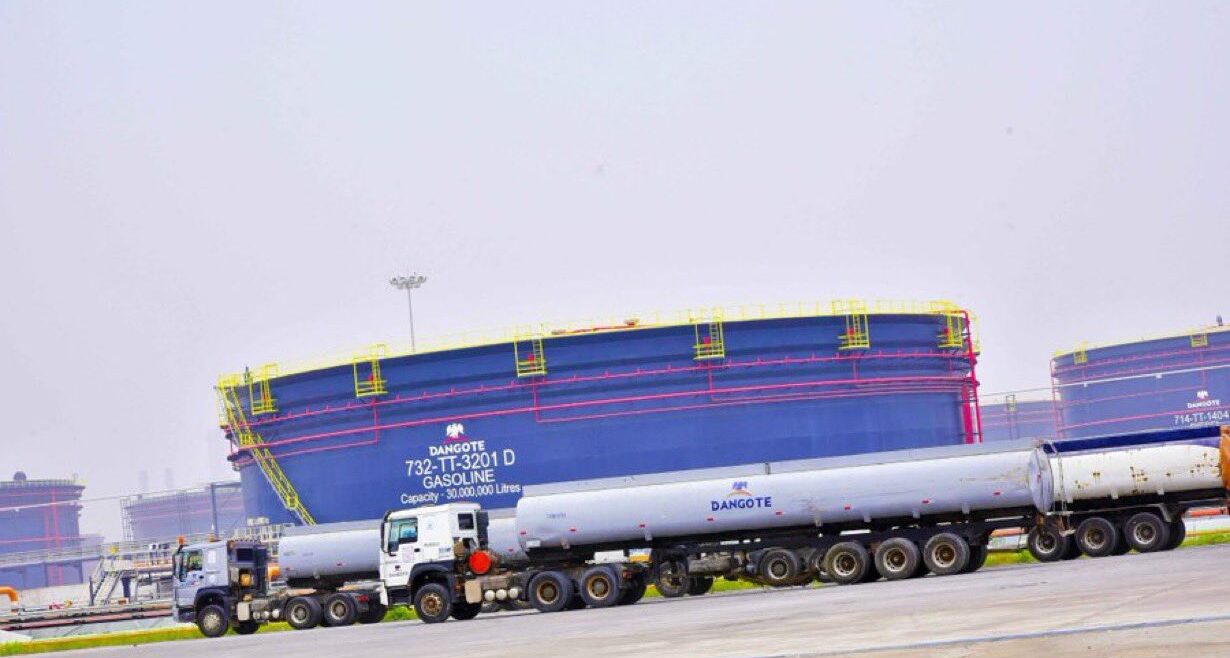
The Dangote Petroleum Refinery has announced a reduction in its ex-depot price of premium motor spirit (PMS), also known as petrol, to N970 per litre for oil marketers.
This is a cut from the refinery’s N990 ex-depot price announced earlier this month, according to a statement on Sunday.
The slash would help marketers save about N20 on each litre of petrol bought from the Lekki-based plant.
Anthony Chiejina, Dangote Group’s chief branding and communications officer, said the move is the refinery’s way of appreciating Nigerians “for their unwavering support in making the refinery a dream come true”.
“In addition, this is to thank the government for their support as this will complement the measures put in place to encourage domestic enterprise for our collective well-being,” the statement reads.
“While the refinery would not compromise on the quality of its petroleum products, we assure you of best quality products that are environmentally friendly and sustainable.
“We are determined to keep ramping up production to meet and surpass our domestic fuel consumption; thus, dispelling any fear of a shortfall in supply.”
Business
Allegation of missing fund untrue, says Access Bank
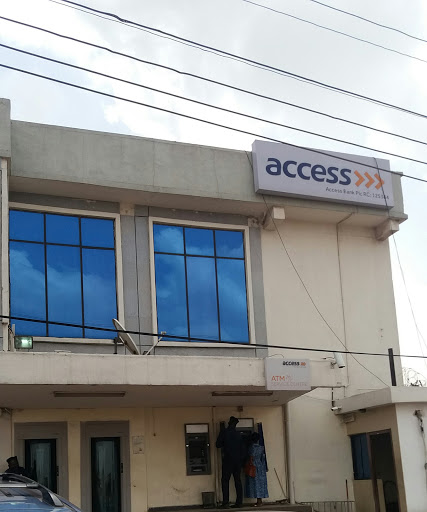
Access Bank Limited has dismissed as untrue allegations of missing fund and unethical behaviour.
The Bank in a statement said: “Our attention has been drawn to a video on social media wherein allegations of missing funds and unethical behaviour have been made against Access Bank PLC.
“First and foremost, we wish to emphasise that the safety and security of our customers’ funds are core priorities which we take seriously. Second, Access Bank Plc does not engage in or condone any unethical behaviour.
“In the instant case, the allegations of missing funds in the Bank are most untrue and baseless.
“There is no N500million or any other fund or amount missing from the subject customer’s account or from any other customer’s account with us.
“We and other independent stakeholders in the banking industry have thoroughly investigated these allegations and independently arrived at the same conclusions.
“Access Bank PLC operates with the highest ethical standards, and we protect our customers’ interests whilst also respecting privacy laws.
“Consequently, whilst we have engaged and will continue to engage with our customers, we must advise the public not to rely on or believe sensational and unverified claims that are designed to titillate and mislead the public.
“We remain committed to serving our customers.”
Business
31 electricity towers affected as vandals destroy transmission lines in Edo communities

The Transmission Company of Nigeria (TCN) says vandals in Benin, Edo state, have destroyed 31 transmission towers.
In a statement on Friday, Ndidi Mbah, TCN’s director of public affairs, confirmed that vandals attacked transmission towers in Okada and Ofosu communities along the 330kV Benin-Egbin and Benin-Omotosho transmission lines.
Mbah said the vandalised towers, which suffered significant damage with critical components removed earlier in November, were discovered by TCN linesmen during a routine patrol.
“A total of 31 towers were affected in this incident,” she said.
“TCN engineers from the Benin Sub-Region have initiated repairs to prevent the collapse of the affected towers and to avoid disruption of bulk power supply.”
‘AHOADA-YENAGOA LINE UNDER REPAIR TARGETED BY VANDALS’
Mbah also said its Ahoada-Yenagoa 132kV line, which was under repair following a previous attack, was once again targeted by vandals.
The TCN spokesperson confirmed that the attack, which occurred on November 19, affected towers 29 to 31 and resulted in the theft of approximately one-third of the conductor.
On August 14, TCN announced that Bayelsa state would face a prolonged power outage following the destruction of 13 transmission towers along the Ahoada-Yenagoa 132kV double circuit transmission line by vandals.
The transmission company, on October 29, reported that 65 percent of the damaged transmission towers had been repaired.
The company said 17 transmission towers had been successfully erected, with work continuing on the remaining three.
“A team of TCN engineers, led by Engr. Emmanuel Akpa, General Manager of the Port Harcourt Region, has conducted an inspection of the site,” the statement reads.
“Preliminary findings indicate that the incident occurred at night. In an attempt to prevent further theft while repair arrangements are being made, local security has been engaged at Ula Ikata in Ahoada East LGA to secure the site until repairs are completed.
“Additionally, the line will be energized from the Ahoada end as a preventive measure.”
Mbah added that efforts are underway to replace the stolen 250mm conductor.
Despite challenges posed by difficult terrain and flooding, she said the restringing of the Ahoada-Yenagoa 132kV line is approximately 85 percent complete.
The public relations officer stressed that the incidents underscore the urgent need to address the growing problem of vandalism and theft, which continue to affect Nigeria’s power infrastructure.
She urged the public to support efforts to tackle such criminal acts, which have hindered the expansion and stability of the national grid.
Mbah also called on security operatives and local communities to remain vigilant in protecting power infrastructure in their areas as TCN intensifies its efforts to safeguard its installations.
-
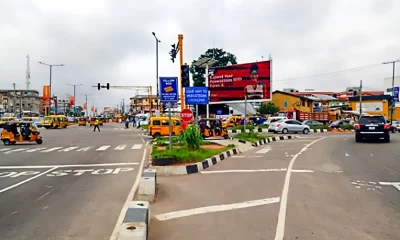
 Business1 week ago
Business1 week agoLagos state government to commence upgrade of major junctions in Ikeja axis, seeks residents’ cooperation
-

 Politics1 week ago
Politics1 week agoDSS operatives arrest man with bags of cash during Ondo guber
-

 Celebrities1 week ago
Celebrities1 week agoDaddy Freeze, Akah Nnani clash over Emmanuel Iren
-

 Special Features2 days ago
Special Features2 days agoIyabo Ojo, Brainjotter, Dayo Oketola, Penzaarville, Tomiwa and others to speak at the Bodex Social Media Hangout 5.0
-
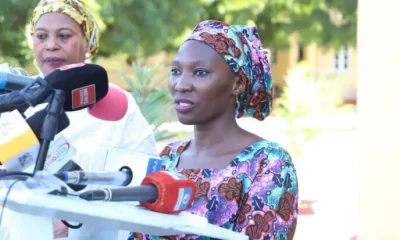
 News1 week ago
News1 week agoAlice Loksha, abducted UNICEF nurse, escapes captivity after 6 years
-

 News1 week ago
News1 week agoNnamdi Emeh: Suspect Facing Charges In Court, Process Independent Of Police Influence
-

 Health1 week ago
Health1 week agoFive ways to rid your home of ants
-

 Politics1 week ago
Politics1 week agoAiyedatiwa takes commanding lead in Ondo guber poll after winning 15 of 18 LGAs


















